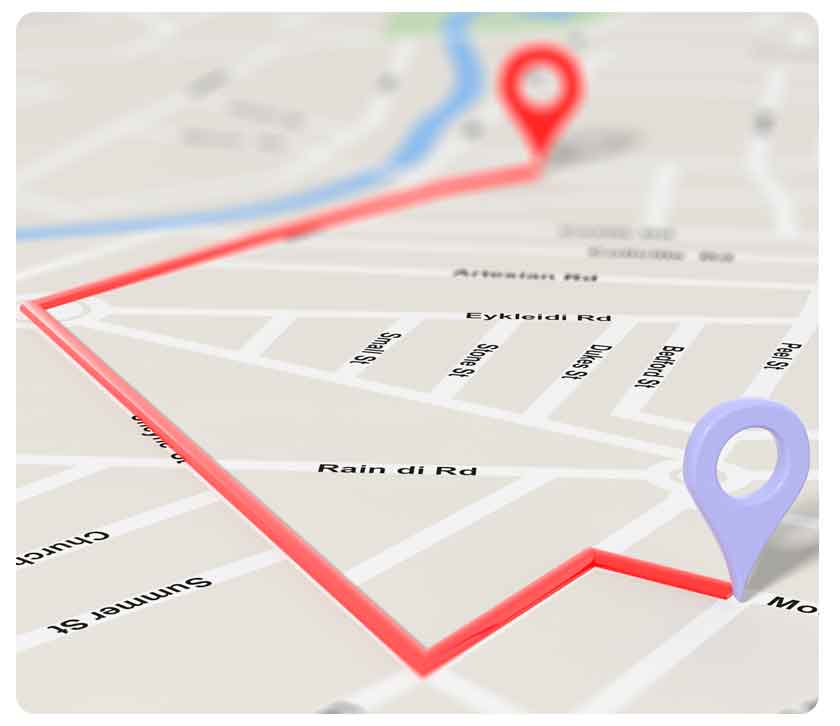It’s simple psychology — people are more likely to attend an event when they know how easy it is for them to get there. “I know right where that is!” Or, “That’s only 12 minutes from our house!” This is the value of adding personalized maps to your direct mail and email campaigns. They make it easier for your audience to say “yes.”
Personalized maps use open source or proprietary street data and show the route from the recipient’s home or office to the location, along with the drive times. Although the technology behind personalized mapping is complex, designing a piece with personalized maps is no different from designing one using any other image. You create a unique ID for each person on your list, then treat the maps as you would any other variable image in your layout.
Why do personalized maps work when your audience can simply plug your address into Google Maps? Because you’ve already done it for them. As soon as they open that direct mail or that email, it’s right there. A visualization is a powerful tool. Once your audience has seen the map and visualized how to get there, you’re already on your way to a sale.
Do these maps work? Just to give two examples: AARP’s Driver Safety (ADS) team had been experiencing declining audiences for its in-person courses. By showing drivers the way to their closest training location, AARP’s Driver Safety team boosted attendance by 50% in the first year. In another example, a restaurant in the Tulsa, OK, area was opening a new location, so it purchased a prospect list within proximity of the restaurant. It created personalized maps showing the route from the recipient’s home to the restaurant and included a $10 coupon. The offer had a 24% redemption rate.
Personalized maps can be generated anywhere from 300–1200 dpi. If you choose the option of reducing the contrast between background colors, when the recipient sees the mailer, the highlighted route jumps out. It is the first thing they see.
Personalized maps have proven results. What kind of results could they produce for you?
